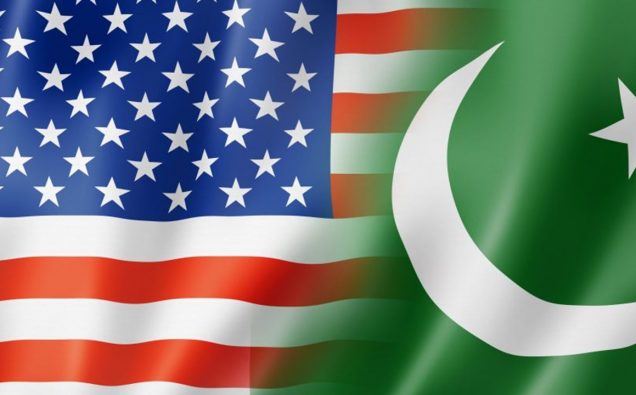
The U.S-Pakistan relationship has moved from coercion to cooperation and Prime Minister Imran Khan’s talks with President Donald Trump will emphasize a reset in US-Pakistan relationship, which has been dictated by imperatives of 9/11-triggered Afghan war, Pakistan’s top diplomat said Friday.
Pakistan’s foreign minister Shah Mehmood Qureshi believes now that the Trump Administration is planning to extricate U.S. from the longest war in American history, a space is emerging for focus on bilateral potential of the relationship.
“We are here to reset our bilateral relationship,” the foreign minister said on the even of Prime Minister Khan’s arrival in the United States.
The two countries have shown signs of improvement in relations, which hit a new low when President Trump stopped economic and military aid to the country after a January 1, 2018 tweet in which he accused Pakistan of being complicit in Taliban attacks in Afghanistan.
However, in December 2018 President Trump requested Pakistan’s help to kickstart an Afghan peace process. Complying with the request, Pakistan has pushed the Afghan Taliban to negotiations with U.S. special envoy Zalmay Khalilzad. The U.S. and the Afghan militia are understood to have broadly agreed on a framework to end the war.
The Trump Administration has since then acknowledged Pakistan’s cooperation for Afghan peace and this week President Trump will receive Prime Minister Khan at the White House for wide-ranging talks.
Qureshi made the case for bilateral cooperation at a Press briefing ahead of July 22 White House parleys.
“We want to take forward an environment of trust and cooperation that has developed between the two countries from a low point in the ties.”
“The relationship has moved from coercion to cooperation,” Qureshi said.
A the same time Qureshi tempered any expectations from the talks.
“We have a realistic and pragmatic approach to Pakistan-US relations. I do not want to raise unrealistic expectations. The basis is going to be honesty.”
In a first, Pakistan’s Army Chief Gen Qamar Javed Bajwa will also accompany Prime Minister Khan to bilateral engagements during the visit.
FM Qureshi says this shows there are no disconnects between Pakistan’s top political and military leaders, as had been the case previously.
“We will not compromise on Pakistan’s national interests,” Qureshi said of the difference in Imran Khan’s approach to the ties and that of his predecessor.
The Pakistani diplomat identifies several areas of convergence between Islamabad and Washington including desire for peace in Afghanistan and a peaceful South Asia, which he said, has remained behind other developing regions due to absence of durable peace.
On Kashmir, Qureshi says, it remains a flashpoint and citing recent UN reports about the human rights violations in the Indian-controlled territory points out that there has been a greater international understanding about the gravity of the situation.
Qureshi says the US helped defuse Pakistan-India tensions in the wake of Pulwama attacks.
Islamabad, he says , wants a mutually beneficial economic relationship with the Untied States.
Speaking of Pakistan’s relations with China, Qurshi said Pakistan is open to US investment in China Pakistan Economic Corridor.
Khan is scheduled to address a gathering of Pakistani community in D.C., meet Secretary of State Mike Pompeo, the Senate Foreign Relations Committee and address members of US Pakistan Business Council. The PM will also meet members of U.S.-Pakistan Caucus.














